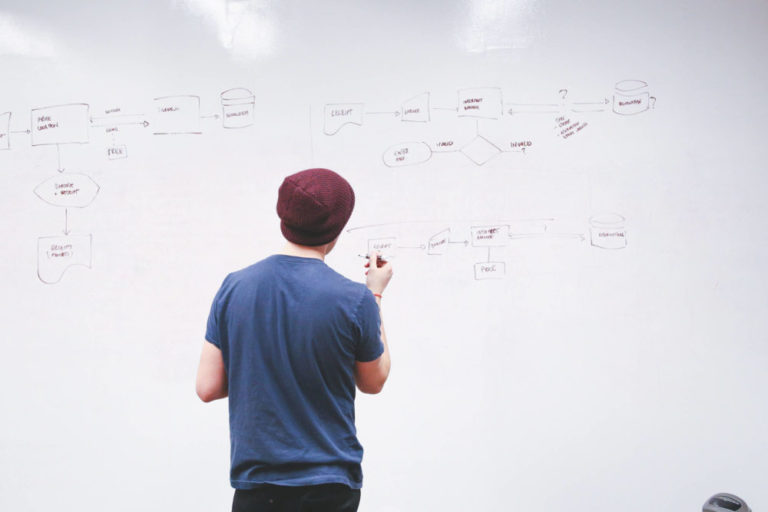Examples of Confirmation Bias (and How to Overcome It)
Looking for information that confirms what you already believe? That’s the confirmation bias at work. Here’s why it happens and how it affects how we think.

You’ve probably noticed the tendency to favor information that confirms your existing beliefs while ignoring anything that challenges them. This is known as confirmation bias, and it’s more ingrained in our day-to-day lives than you might think. It’s not just about defending your favorite sports team or political party—it’s a cognitive bias that subtly influences your decisions, perceptions, and even your online browsing. But what’s the real impact of this bias, and how can we explore it further? Let’s delve into and investigate.
Key Takeaways
- Confirmation bias is a cognitive tendency favoring information that aligns with pre-existing beliefs, often disregarding contradictory data.
- In news reporting, confirmation bias can lead to selection of stories and sources that validate specific audience beliefs, fueling division and polarization.
- Horoscopes are often interpreted with bias, as their vague nature allows for broad interpretation that aligns with the reader’s existing beliefs or desires.
- Criminal investigations can be compromised by confirmation bias, as preconceived theories may skew the collection and interpretation of evidence.
- Stereotypes are often reinforced through confirmation bias, as individuals tend to seek information that aligns with their beliefs, disregarding opposing perspectives.
Understanding Confirmation Bias
To fully grasp confirmation bias, it’s pivotal to understand that it’s a cognitive bias that prompts us to seek and favor information that aligns with our existing beliefs and ignore data that contradicts them.
Think about when you’re adamant about a sports team winning. You’ll cling to every positive statistic, dismiss any negative commentary, and even interpret ambiguous information in their favor.
Or consider how your political leanings may affect your interpretation of a policy’s effects. And it’s not just about big things; even your daily horoscope could be a victim of confirmation bias.
You’re more likely to remember the events that fit the prediction and forget all the instances it was off the mark. This unswerving faith in our beliefs, despite contrary evidence, is confirmation bias.
Confirmation Bias in News Reporting
Just as you might interpret your daily horoscope in a way that fits your existing beliefs, news reporting too often reflects confirmation bias, particularly in relation to political affiliations.
You’ve probably noticed how some news outlets seem to lean left or right. That’s no accident. It’s because they’re catering to a specific audience with predetermined views. They select stories, sources, and even phrases that validate their viewers’ beliefs. This guarantees viewer loyalty but it also fuels division and polarization.
In reality, it’s a vicious cycle. You watch news that validates your beliefs, which further strengthens your bias. So next time you tune in, remember to question what you’re being told and seek out diverse perspectives to challenge your own bias.
Horoscopes and Interpretative Bias
Ever find yourself nodding along to a horoscope that seems to mirror your life perfectly? This is confirmation bias at work, where you’re interpreting the horoscope in a way that confirms your pre-existing beliefs, and and example of a phenomenon known as the Barnum effect.
Horoscopes are typically written with such vagueness that they can be interpreted to fit almost any situation. Now, you’re not alone in this. It’s a common human tendency to seek out and focus on information that aligns with our own views.
But this is where the danger of interpretative bias lies. It can prevent you from seeing things as they truly are, leading you to make decisions based on skewed perceptions. So next time you read your horoscope, take it with a grain of salt.
Criminal Investigations and Bias
In criminal investigations, your preconceived theories can cloud judgment, leading to a skewed collection and interpretation of evidence. This is due to confirmation bias, where you’re drawn to details that support your beliefs, overlooking anything contradictory.
Imagine you’re a detective, and you’re convinced the suspect is guilty. You might subconsciously ignore evidence suggesting innocence, focusing only on the guilt-confirming clues. This bias can severely compromise the fairness of investigations.
To counter this, it’s important to maintain objectivity, constantly questioning your own theories. Remember, you’re human and can fall into this bias trap. Stay aware, ensure a balanced evidence review, and collaborate with others for different perspectives.
Stereotypes and Confirmation Bias
Stereotypes are a tricky beast, often reinforced by the confirmation bias you unknowingly carry. This bias, which we all have, causes us to seek out information that aligns with our existing beliefs, while ignoring or dismissing opposing views.
For instance, if you believe that all politicians are dishonest, you’re more likely to notice news stories that confirm this belief, reinforcing the stereotype.
Similarly, if you’re convinced that a certain ethnic group is superior at a particular skill, you’ll pay attention to examples supporting this notion while disregarding counterexamples.
In the workplace, managers might favor employees who fit their preconceived notions about who’s competent and who isn’t, leading to discriminatory practices.
The Role of Algorithms in Internet Bias
Just as biases can creep into our personal and professional lives through stereotypes, they also shape our digital world, particularly through the role of algorithms in creating internet bias.
You see, algorithms are like digital gatekeepers. They decide what you see online based on your browsing history, clicks, likes, and shares. Unfortunately, this often means you’re exposed to information that confirms your existing beliefs, creating an echo chamber.
This sort of algorithmic bias can limit your perspective, reinforcing your preconceived notions and inhibiting your ability to see the bigger picture.
It’s important to realize that while algorithms make our online experience more personalized, they also play a part in perpetuating confirmation bias. Be aware, so you can break free from this digital illusion.
Overcoming Confirmation Bias
How can you combat confirmation bias in your daily life? It begins with awareness. Recognize when you’re looking for information that only supports your beliefs. Once aware, you can make conscious efforts to confront it:
- Seek out different perspectives: Don’t just hang out in your echo chamber. Actively look for opposing views to challenge your beliefs.
- Test your assumptions: Don’t assume you’re right. Test your beliefs and assumptions against hard facts and evidence.
- Ask for feedback: Don’t rely solely on your own judgment. Ask others for their opinions, and be open to their insights.
Overcoming confirmation bias isn’t easy. It requires effort and courage. But, it’s a journey worth undertaking for the sake of personal growth and objective decision-making.
Frequently Asked Questions
How Does Confirmation Bias Influence Our Political Voting Patterns?
You’re likely to vote based on your existing political beliefs. Confirmation bias kicks in when you filter out conflicting information and focus only on what supports your views, influencing your voting patterns.
Is Confirmation Bias More Prevalent in Certain Professions or Fields of Study?
Yes, confirmation bias can be more prevalent in certain professions or fields. For instance, journalism, law enforcement, and research often face higher risks of this bias as they’re inherently subjective in their assessments.
Do Children Display Confirmation Bias, or Is It a Learned Behavior?
Yes, children do display confirmation bias. It’s not just learned behavior. They often favor information confirming their beliefs, ignoring conflicting data. This bias can be seen in play and learning, influencing their perception.
What Are the Potential Dangers of Algorithm-Induced Confirmation Bias on Social Media Platforms?
Algorithm-induced confirmation bias on social media can trap you in a bubble of like-minded content, limiting your exposure to diverse opinions. It can distort your perception of reality and magnify polarisation in society.
Does Overcoming Confirmation Bias Necessarily Mean Changing Our Existing Beliefs?
Overcoming confirmation bias doesn’t mean changing your beliefs. It’s about challenging them, seeking diverse perspectives, and being open to information that contradicts your views. It’s growth, not necessarily a complete shift in belief.
Summary
Understanding and addressing confirmation bias isn’t just an academic exercise. It’s a pivotal step in promoting critical thinking, fairness, and diverse perspectives in every aspect of life.
Be it news reporting, criminal investigations, or even horoscope readings, awareness of this bias can help you make more balanced decisions.
Remember, the internet’s algorithms might just be feeding your biases. So, challenge yourself, question your beliefs, and keep an open mind. It’s your key to overcoming bias.
Sources:
Allahverdyan, A. E., & Galstyan, A. (2014). Opinion dynamics with confirmation bias. PloS one, 9(7), e99557. https://doi.org/10.1371/journal.pone.0099557
Nickerson, R. S. (1998). Confirmation bias: A ubiquitous phenomenon in many guises. Review of General Psychology, 2(2), 175–220. https://doi.org/10.1037/1089-2680.2.2.175
Suzuki, M., & Yamamoto, Y. (2021). Characterizing the influence of confirmation bias on web search behavior. Frontiers in Psychology, 12, 771948. https://doi.org/10.3389/fpsyg.2021.771948





